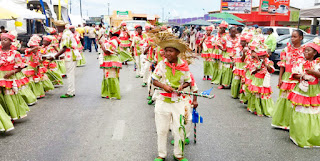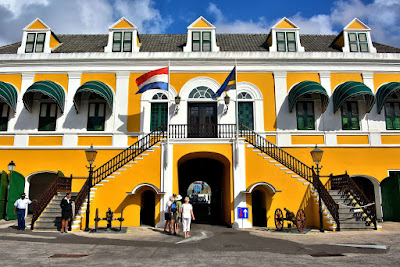El Caribe Gris
While reading Caribe Gris, I began reading the original Spanish version. Since I'm bilingual, I thought reading it would be easy, which it was, but I began to question myself when they referred to Christopher Columbus' writings as "inutil". It was surprising to see the writer speak about Columbus in that matter. I didn't know what the main idea was about, so stumbling across that sentence made me question my translating ability. At that moment, I quickly turned on the English version, and to my surprise, they did mean to call his writings useless. The writer also called him out on his view of the world as being small, and the location of his lands being incorrect.
As I continued to read, I had to keep switching from Spanish
to English every time I stumbled across anything that seemed a bit off to me.
It seemed the writer had strong feelings towards the way people of the
Caribbean were depicted through those writings. I knew the main idea had
something to do with these inaccurate and fictional writings from Christoper
Columbus, but I was wondering if there was something more to it. As we
discussed the reading in class, I knew I was going in the right direction. It speaks
about Columbus' inaccurate writings and
how the writer feels these biased/fictional writings have an impact on how
others view Caribbean history.
This reading is something I personally never knew or thought
about, but it does make a lot of sense and has quotes, times, and sources they
used down below. They helped me to clarify a few things and informed me of
Bartolome de Las Casas' edits on this particular writing. My opinion on the
main idea continues to be the same. Although I did have difficulty with the
translation, everything seems to go hand in hand with the main idea of this
article. I overcame these difficulties by reading piece by piece and in both
languages to grasp the message of El Caribe Gris.



Comments
Post a Comment